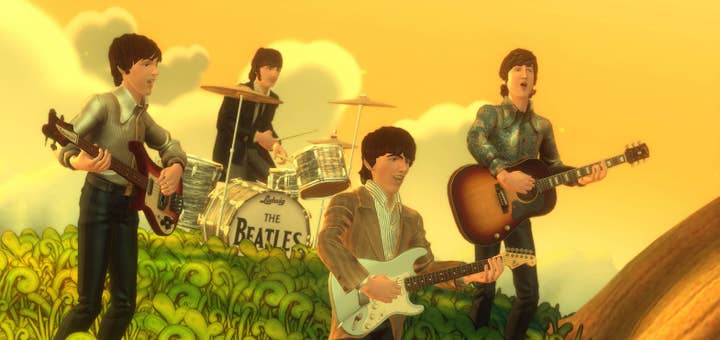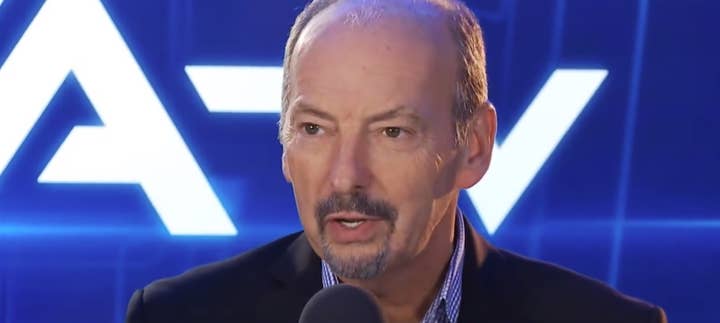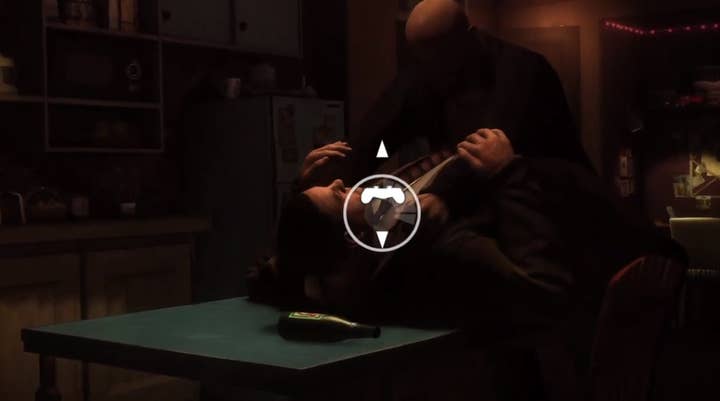That time David Cage asked fans to stone Fox News
10 Years Ago This Month: The industry casually cultivates poor fan behavior, the global economic crisis strikes back, and physical media is a burning platform
The games industry moves pretty fast, and there's a tendency for all involved to look constantly to what's next without so much worrying about what came before. That said, even an industry so entrenched in the now can learn from its past. So to refresh our collective memory and perhaps offer some perspective on our field's history, GamesIndustry.biz runs this monthly feature highlighting happenings in gaming from exactly a decade ago.
Rattling Cage
We're going to try out a new section for the column below called "Good Call, Bad Call," looking back on an assortment of various predictions and assertions from around the industry and, with the benefit of a decade's worth of hindsight, determining who was right and who was wrong. As the name suggests, some of these calls have aged better than others.
But the award for worst aging of any call on the site from October of 2009 has to go to Quantic Dream's David Cage for a literal call to violence during a Eurogamer Expo developer session.
"So Heavy Rain is so much not about sex and violence, it's about characters and emotions," Cage said, adding, "Even if Fox News comes and plays the game and says it's about sex, the whole community of gamers, I'm sure, will stand up and throw stones at them. That's what I hope. I count on you guys."
Cage was clearly joking, but in light of everything we've seen in the past 10 years, it's the furthest thing from humorous. There were still examples of indefensible fans behavior back then, but they were treated like novelties, bizarre and rare side shows rather than the natural background radiation of a hobby or a cultural crisis that needed addressing. It simply wasn't taken seriously. When Cage was cracking wise, we were still three years away from the Mass Effect 3 ending uproar (which showed just how much angry gamers could be mobilized), and a couple more beyond that from GamerGate (which showed how they could be weaponized against specific targets).
Since then we've seen:
- Developers being swatted
- Developers having their plane diverted by bomb threats (in addition to bring swatted multiple times)
- Death threats for nerfing some in-game guns
- Death threats for putting new skins in loot boxes
- Death threats for delayed games
- Death threats for reporting about delayed games
- Death threats for tweeting about International Women's Day
- Death threats for not localizing a game for Chinese audiences
- Death threats for losing in a game
- Death wishes and all manner of abuse for signing a time-limited store exclusivity deal
- Harassment for being laid off without severance from a collapsing studio and not finishing a game you weren't working on anyway.
- Individual developers subject to organized harassment campaigns over complaints for which those developers weren't responsible.
- Individual developers fired by their employers at the behest of organized harassment campaigns over complaints for which those developers weren't responsible.
That is the industry we have now, and I'm not going to pretend it's Cage's fault significantly more than it is any other individual's. But as we consider how best to deal with the toxic behavior festering in this space today, we should be able to recognize that the industry has done itself no favors in the way it has historically cultivated gaming fandom.
By inducing players to build the very core of their identities around the games they play, the systems they play them on, and the brands they engage with, the industry creates an ideal breeding ground for conflict against anyone who would threaten that identity, whether it be fans and creators of competing products, game reviewers, mainstream media pundits, parents, politicians, or even the developers behind the brands.
Intentionally or not, the industry has fostered a culture conducive to this sort of behavior. Cage's explicit call to arms wasn't a horrifying escalation or a significant advancement of that; it was just a rare peek behind the veil of plausible deniability the industry usually keeps up. And that veil is increasingly harder to hold in place with every additional story we see like the ones linked above.
Return of the Recession
Last year's 10 Years Ago This Month column for October was pretty grim, likening Electronic Arts to a remorseless serial killer because John Riccitiello once promised the company would "kill a game or two a year. Forever." As that column showed, EA has largely followed through on that (and added EA Vancouver's Star Wars project as this year's victim).
But perhaps the scariest part of last year's column was the last line of that serial killer section, a link to the Halloween story we ran about EA laying off 600 people because it saw sales slow down over the month. It was one of the first big instances of the global economic crisis really impacting the games industry. (Just days earlier, EA VP and GM for Northern Europe Keith Ramsdale was telling people it was too early to know if the crisis would have any impact on games.) It was also a foreshadowing of the year to come, which saw a steady drip of depressing news, punctuated by a month here and a month there where it seemed absolutely everything was going off the rails.
Even so, the general pace of bad news had slowed as time went on. By the time October rolled around, there was actually a bit of optimism in the air. Between long-awaited price cuts to the Wii and the PlayStation 3 and a lineup of highly anticipated software like The Beatles: Rock Band, Wii Sports Resort, and Halo: ODST, analysts were positively upbeat about how things were going for the first time all year. But like any good horror movie villain, the economic crisis waited for people to let their guard down to cue up the jump scare.

The analysts had their optimistic bubble burst as The Beatles: Rock Band and Guitar Hero 5 fell far short of expectations. The state of the music genre wasn't looking to improve either, as one analyst massively downgraded launch sales expectations for DJ Hero from 1.6 million to 600,000 after checking with retailers about the interest they were seeing for it. That was even taking into account Activision's recent proclamation that it had seen "a huge pre-sales spike" for DJ Hero that would see the series become a tentpole franchise for the publisher.
The hardware side of things wasn't much better. PS3 sales had surged on the introduction of the cheaper PS3 Slim, but the gains weren't enough to prevent overall hardware sales from declining. The recently instituted Wii price cut was ineffective as well, with Nintendo's Satoru Iwata readily admitting that sales had "stalled" and the company had lost its momentum. As he put it, "We were unable to continually release strong software, and let the nice mood cool."
"The nice mood" had cooled around the industry, and a flurry of bad news wasn't helping matters. Here are a few of the notable mood breakers from October:
● Game Crazy shut down 200 stores (about 30% of the chain) citing "an unprecedented consumer/retail environment." (The rest of the stores and sister outfit Hollywood Video shut down the following summer).
● Melbourne-based Transmission Games, developer of Heroes Over Europe and Ashes Cricket, laid off more than 20 people to start October, and shut down entirely three weeks later.
● Habbo Hotel developer Sulake laid off 40 people, about 20% of its workforce.
● Activision laid off half of 7 Studios (about 30 people), which had been working as a support studio on DJ Hero.
● Activision closed Shaba Games, a support and porting studio on numerous Activision franchises that led development on the previous year's Spider-Man: Web of Shadows. The studio had 61 employees at the time of its closure.
● Budget software publisher Oxygen Games entered administration. The company's CEO would quickly buy it out of administration and rename it OG International in a controversial pre-pack deal that let what was essentially the same business walk away from previous debts. Oxygen creditors threatened legal action, but OG International continued to put out titles like John Daly's ProStroke Golf and Everyone Sing until 2013.
● Gazillion reportedly laid off around 50 developers at Slipgate Ironworks, an MMO studio founded by John Romero three years prior. Slipgate Ironworks would go dark before launching a game, but the name lives on. Danish developer Interceptor Studios changed its name to Slipgate Studios only to run into confusion with a VR developer of the same name, so earlier this year it adopted the Slipgate Ironworks moniker.
● Idol Minds, developer of the PlayStation 3-exclusive physics game Pain, laid off about two dozen people, or half the studio. Rounding out our trifecta of name-changers here, the company re-branded as Deck Nine two years ago and focused on narrative games. It has since released Life is Strange: After the Storm.
Good Call, Bad Call

GOOD CALL: EA Sports president Peter Moore says that although physical games are "a burning platform," the industry could still be a decade away from saying goodbye to physical discs. That bon voyage will be considerably further away considering the next Xbox and PlayStation systems are confirmed to have discs, but Moore gets the "Good Call" nod for correctly predicting Microsoft would be the first company to release a download-only home console (last year's Xbox One S All-Digital Edition).
BAD CALL: EA's VP and GM for Northern Europe Keith Ramsdale said the audience's "hunger" for digital distribution has spelled the end of the single-player gaming experience. (In all fairness, the single-player doom and gloom doesn't seem to have been the main thrust of Ramsdale's London Games Conference talk covered in the article, but with EA's single-player-only Star Wars Jedi: Fallen Order launching next month, it seemed appropriate.)
GOOD CALL: Microsoft's Xbox Live EMEA boss Jerry Johnson says game-streaming services like Gaikai and OnLive would not be mass market propositions for "the foreseeable future," which I'll arbitrarily cap at about five years in this industry.
"Streaming technology is something that the industry is betting on longer term, " Johnson said, adding, "Right now I don't believe that technology can scale out against the experience we can offer on a local machine."
That was true 10 years ago, and arguably still is today, although Microsoft itself is finally convinced it can try to take it mass market with Project xCloud.
BAD CALL: Wedbush Securities analyst Michael Pachter said, "I think the iPod Touch is the most dangerous thing that ever happened to the publishers, ever," which seems like a terrible call on the face of it. Many publishers (including EA, the specific one Pachter criticized in that piece), have thrived. And Pachter's stated concerns--that cheap phone games would undermine traditional pricing schemes and mobile devices would become kids' entry point to gaming rather than dedicated handhelds--have at least partly come to pass, even if it's deeply debateable how much of that can be attributed to the iPod Touch specifically. The difference seems to be that the mobile market hasn't cannibalized the console market as much as Pachter feared, and publishers like EA have adapted their business models to live ops titles where ongoing income is every bit as important (if not more) than the up-front price of admission.
Still a bad call, but I can almost see where he was coming from. Keep in mind that I once defended John Riccitiello's suggestion that EA's output on the Wii would rival Nintendo's, so it's very possible I am just Bad at This, Actually.
GOOD CALL: Like an industry watcher with the most basic understanding of how digital distribution could reshape video games, GameStop pursued strategies to diversify its business beyond selling games on physical media in brick-and-mortar storefronts.
BAD CALL: Almost a decade later and with digital distribution having already reshaped the industry in dramatic fashion, GameStop last year sold off the most successful part of its diversification plan in order to focus on its core business of selling games and collectibles.)
WORST CALL: We used to spell microtransactions with a hyphen. Micro-transactions. It wasn't even a one-off thing. Just awful.

